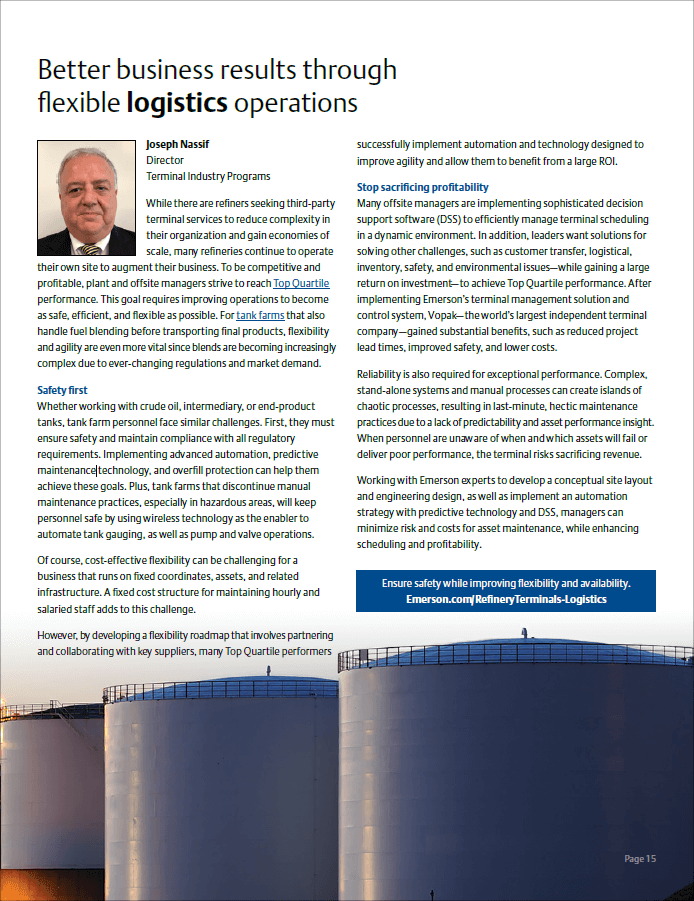 Refineries typically either use third-party storage terminals or have their own tank farms as part of their operations. A Refiner’s Guide to Digital Transformation and Top Quartile Performance article, Better business results through flexible logistics operations, shares how these refineries can improve the flexibility as well as safety, efficiency, and reliability of their tank farm operations.
Refineries typically either use third-party storage terminals or have their own tank farms as part of their operations. A Refiner’s Guide to Digital Transformation and Top Quartile Performance article, Better business results through flexible logistics operations, shares how these refineries can improve the flexibility as well as safety, efficiency, and reliability of their tank farm operations.
For some of these refineries:
…that also handle fuel blending before transporting final products, flexibility and agility are even more vital since blends are becoming increasingly complex due to ever-changing regulations and market demand.
Safety and regulatory compliance are top operational imperatives.
Implementing advanced automation, predictive maintenance technology, and overfill protection can help them achieve these goals. Plus, tank farms that discontinue manual maintenance practices, especially in hazardous areas, will keep personnel safe by using wireless technology as the enabler to automate tank gauging, as well as pump and valve operations.
These technologies also enable personnel flexibility to allow the collaboration of third-party suppliers to improve operational agility and reduce fixed costs. Decision Support Software (DSS), such as Emerson’s TerminalManager terminal management system, help to better manage scheduling and solve:
…other challenges, such as customer transfer, logistical, inventory, safety, and environmental issues—while gaining a large return on investment—to achieve Top Quartile performance.
Read the article for more on how the world’s largest independent terminal company improved business performance and how tank farms can increase overall reliability.
Visit the Refiner’s Guide to Digital Transformation and Top Quartile Performance section on Emerson.com to download the full guide and for other articles on ways to drive operational performance improvements. You can also connect and interact with other refining industry experts in the Refining group in the Emerson Exchange 365 community.




